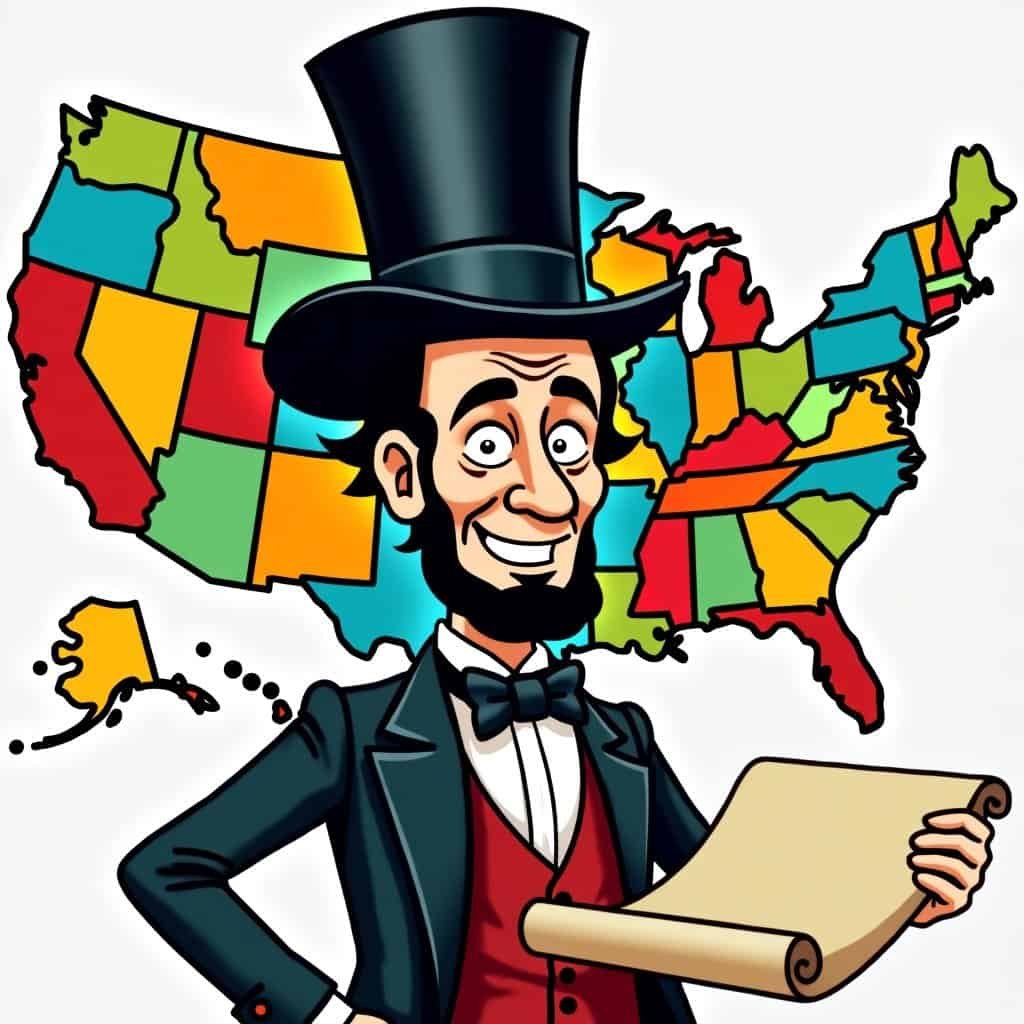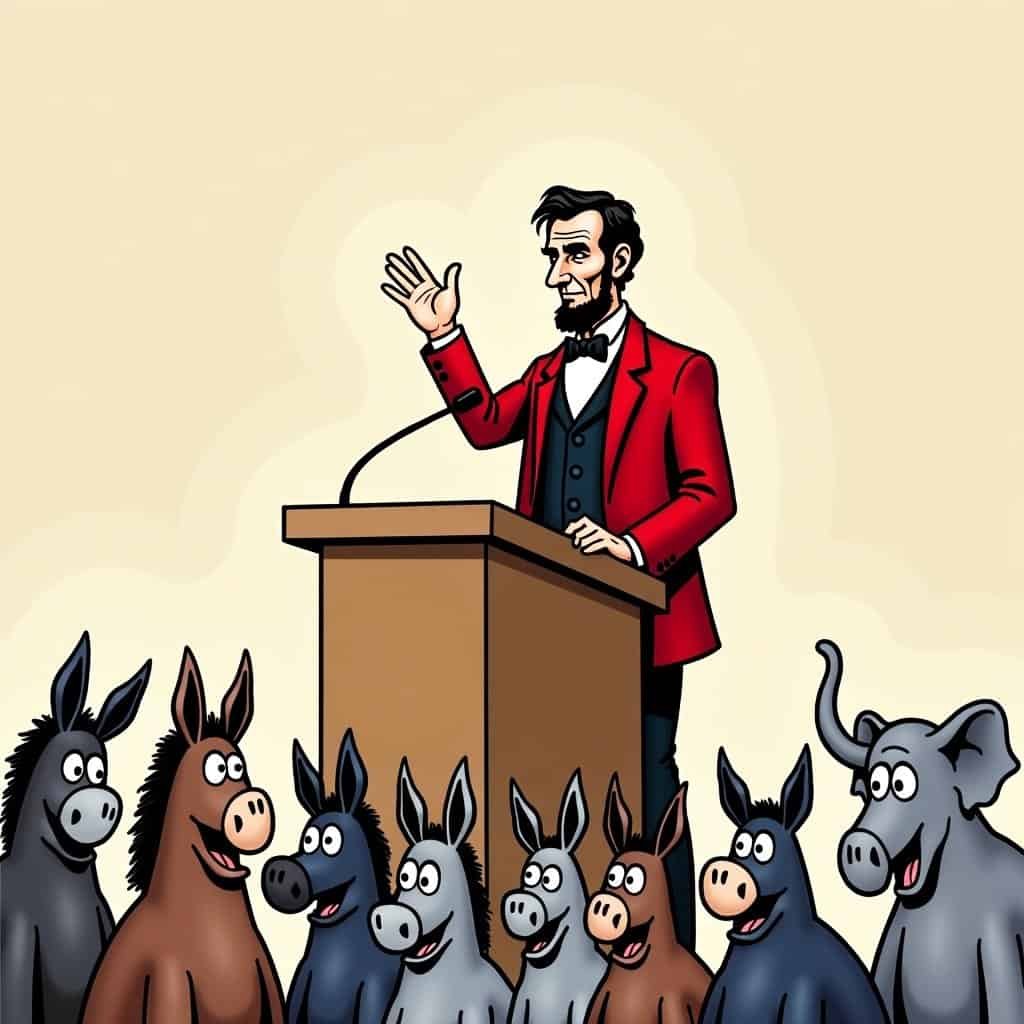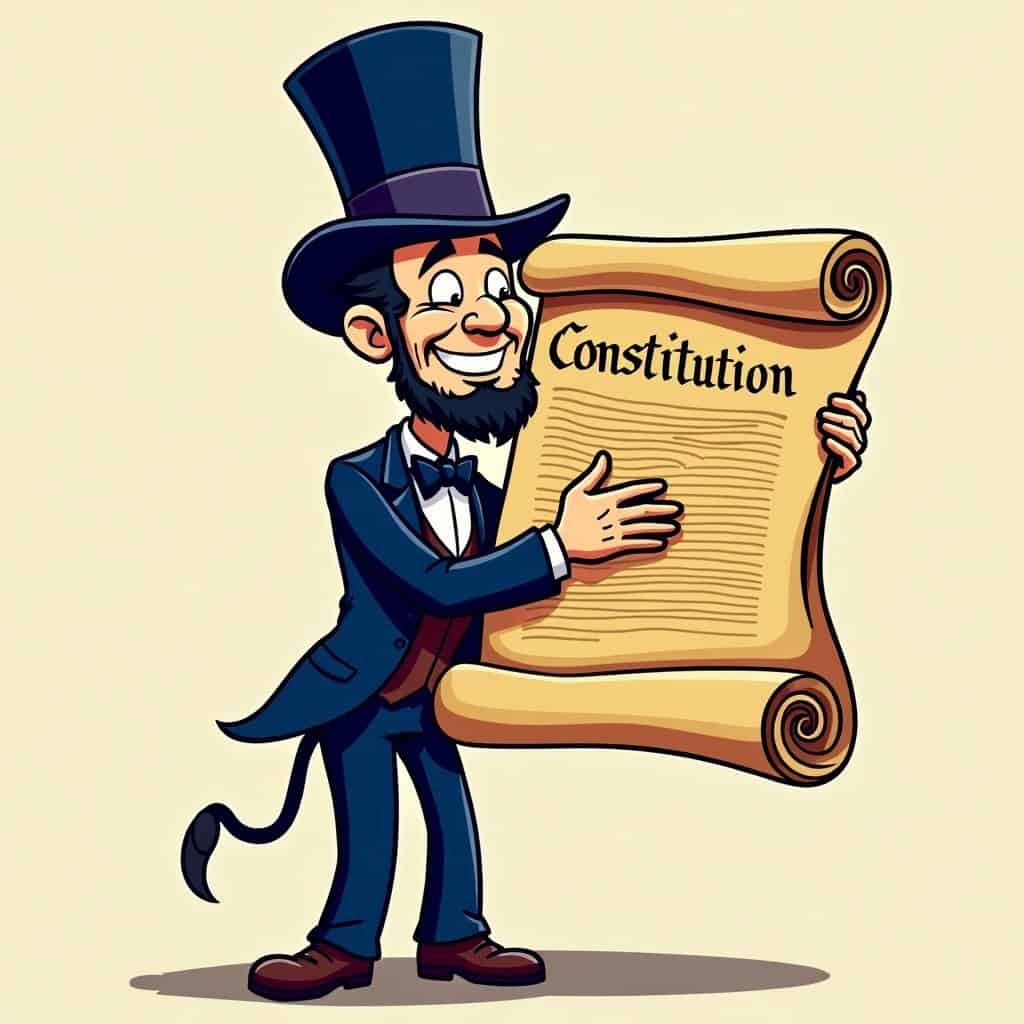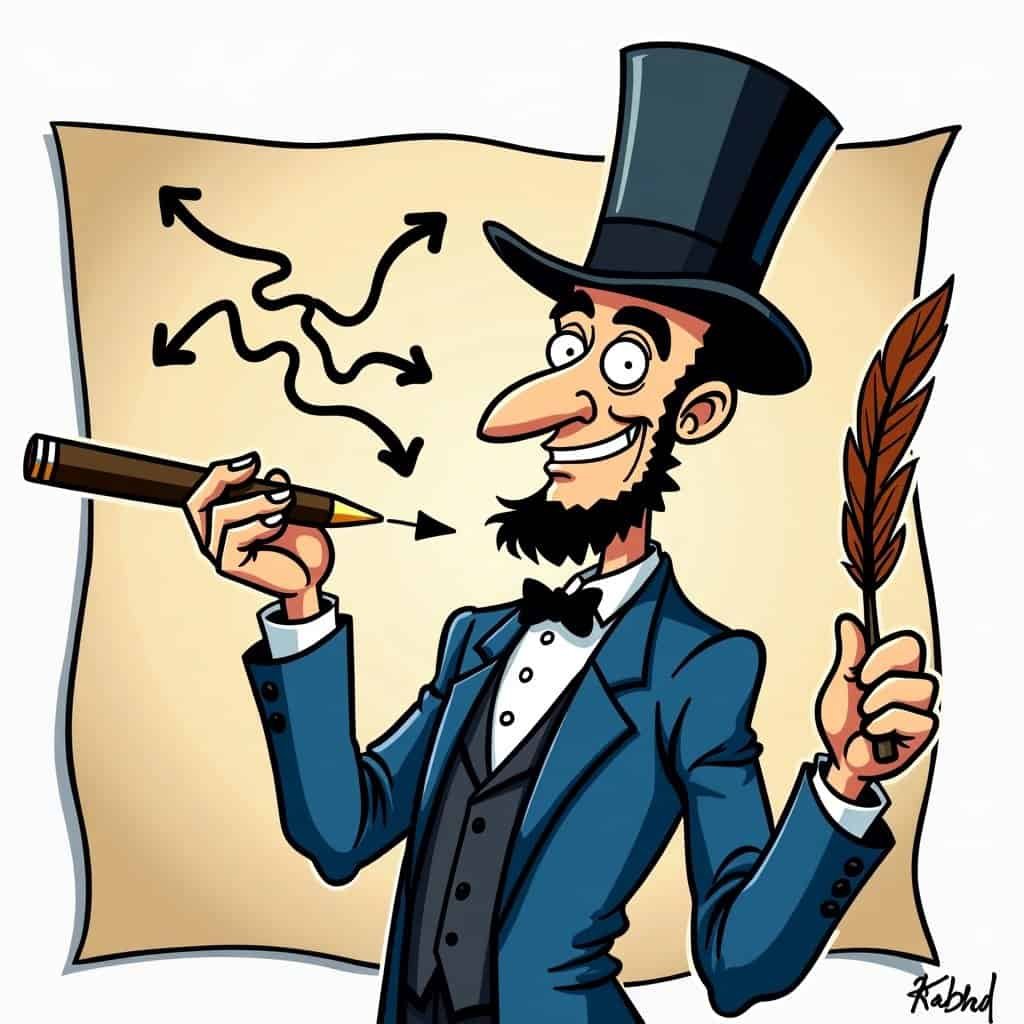Ah, Abraham Lincoln — our beloved 16th president who handled federal authority like a circus performer on a tightrope. Picture it: The nation in its teenage years, trying to decide if it would stay together or split faster than celebrities after a scandal. During the Civil War, Lincoln showed that sometimes you need to stretch the rules to keep the country from falling apart.
Old Abe took the Constitution for a spin that would make even the Founding Fathers raise an eyebrow. Anyone who thought federal power was harmless got a wake-up call when Lincoln unleashed martial law like a lion in a top hat. It wasn’t just about force; it was about keeping the nation whole, something Honest Abe took as seriously as a preacher at a Sunday sermon.
Let’s look at the tug-of-war between state power and federal authority. Lincoln, rolling up his sleeves, knew that letting states do whatever they wanted might mean watching them skip off to form their own country. That’s where a strong central authority comes in—not too different from some traditional conservative ideas if you think about it. After all, protecting the Union was like protecting our freedom, right?
Lincoln’s Wartime Decisions
Now, imagine being a president during wartime with everything on the line. Enter the Emancipation Proclamation—talk about a power move! Lincoln didn’t just do it for moral reasons; it was a smart strategy to boost the Union’s position in the war. In this political chess game, Lincoln was the grandmaster, making moves that people still argue about today.
Key Wartime Actions by Lincoln
- Suspended habeas corpus
- Introduced the draft
- Issued the Emancipation Proclamation
- Expanded federal authority
From putting habeas corpus on hold to starting the draft, Lincoln showed what the government could do during wartime. It was like a parent grounding a troublemaker, but on a national scale. You had to respect his guts, if not his methods.
Sure, some might complain about the tighter federal control, but that’s just how democracy grows. Conservatives can appreciate Lincoln’s handling of state versus federal issues as an example of strong national defense, something we still value today. While others might see it as going too far, we see it as necessary leadership—keeping things together when the country was falling apart like a cheap jigsaw puzzle.
Lincoln’s Legacy
In the end, Lincoln’s wartime use of federal power wasn’t about crushing states’ rights. It was about making sure the Union stayed united for everyone. It’s a legacy that shows federal authority can grow when needed—because sometimes you’ve got to trim the governmental tree so the Constitution can flourish; any true conservative would agree.
So, next time you hear complaints about the federal government overstepping, remember Lincoln’s wartime balancing act. It reminds us that sometimes the government’s role isn’t too big—it’s just doing its job to keep our country in one piece. Now that’s a thought you can tip your hat to!






